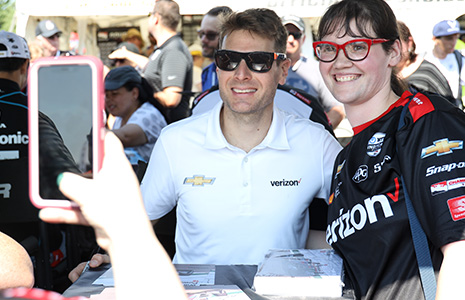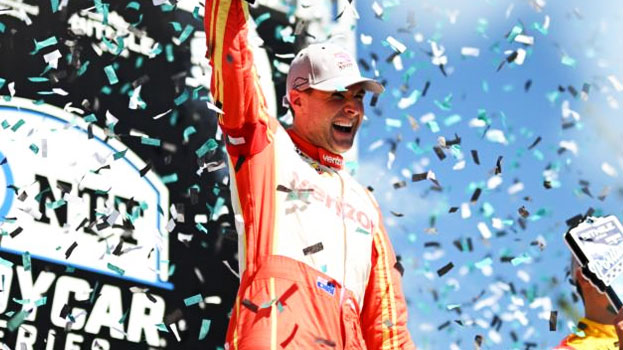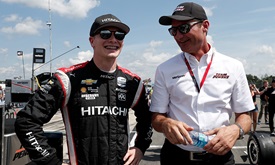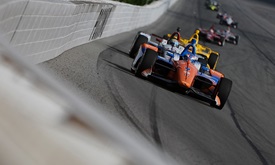Power has turned struggles into success on ovals
AUG 20, 2019
Remember when the knock against Will Power was ovals? Consistency and success make that criticism seem ancient.
In case you haven’t been paying attention, Power is quite good on ovals. Another win Sunday at Pocono Raceway reiterated that fact. It also pointed out another interesting theorem: The best racers adapt, and they adapt quickly.
Considering how disappointing this season has been for Power, the ability to adapt bodes well for the future. Not the immediate future, perhaps, but seasons to come.
“It turns around eventually,” Power said Sunday after winning the rain-shortened ABC Supply 500. “If you keep performing and doing the work, eventually it turns around for you. Can't have bad luck all the time. It's not all bad luck, believe me. There's always a reason. It's rarely bad luck, honestly. Always put it down to something that wasn't done right.”

There isn’t much Power hasn’t done right on ovals lately. Since his first superspeedway win at Texas Motor Speedway in 2011, he’s won on ovals eight times, including three at Pocono. In that 2011 season, he won six races -- five on road or street courses -- but lost the championship to Dario Franchitti when he finished 19th in the season finale at Kentucky Speedway.
The following year, Power lost the championship to Ryan Hunter-Reay when he crashed in the season finale at Fontana. That’s when the idea that ovals as a weakness came about. Naturally, one year later, Power quieted that discussion by winning at Fontana.
“Really, it was at Fontana,” he said of the turning point in the very public discussion. “I always did reasonably well on ovals, it's just that I did extremely well on street courses. Won all my races there. Look at the contrast. No one else is winning on superspeedways, really. No one dominates.”
But some, like Power, are extremely good on ovals. Since the 2013 victory at Fontana, he’s won at Milwaukee, Texas again, Indianapolis, Gateway and Pocono three times.
The deciding factor? Experience.
“(I’ve) just got a lot of experience on the them now,” he said. “(I) know what I want from the car, can always get it pretty good, know when to take the risk and when not to. You can't beat experience on these sort of tracks. It's not easily learned because going in the wall hard is kind of how you learn.”
Consider Power’s numbers in four races at Pocono. He’s led 136 of the 728 laps, won a pole, never started worse than eighth, won three times and never finished worse than second. On Sunday, he worked his way into the lead lead on Lap 39, battled with Scott Dixon and Simon Pagenaud as rain approached, then made sure he was leading with it fell.
When did Power know he had a car capable of winning Sunday's race? When the green flag waved.
“As soon as the race started, I knew we had a good car,” he said. “I knew we had a good car going in. Yeah, we just made some adjustments, kind of had a lot of push. Obviously back in traffic there, I ended up trimming out a little bit at the end there. All the right moves.
Learning on adapting to ovals -- specifically superspeedways. It’s one of the defining characteristics of the best racers of this era. Because of the split and backgrounds that didn’t include ovals, drivers wishing to contend for championships had to teach themselves how to win on ovals. The best made it work.
They also continue to make ovals work. It’s not a question of if. It’s a question of must.
“This sport has become so tough these days,” Power said. “You can't leave anything on the table in any way. If you do, you're simply not going to win.”
Power won last year's Bommarito Automotive Group 500 at World Wide Technology Raceway at Gateway, a 1.25-mile oval track in Madison, Ill., and he will have the chance to repeat as race winner Saturday night. The television broadcast will begin at 8 p.m. ET on NBCSN with the green flag set for 8:45 p.m. Live radio broadcasts will be available on the Advance Auto Parts INDYCAR Radio Network and Sirius Satellite Radio (XM 209, Sirius 98, Internet/App 970).






















